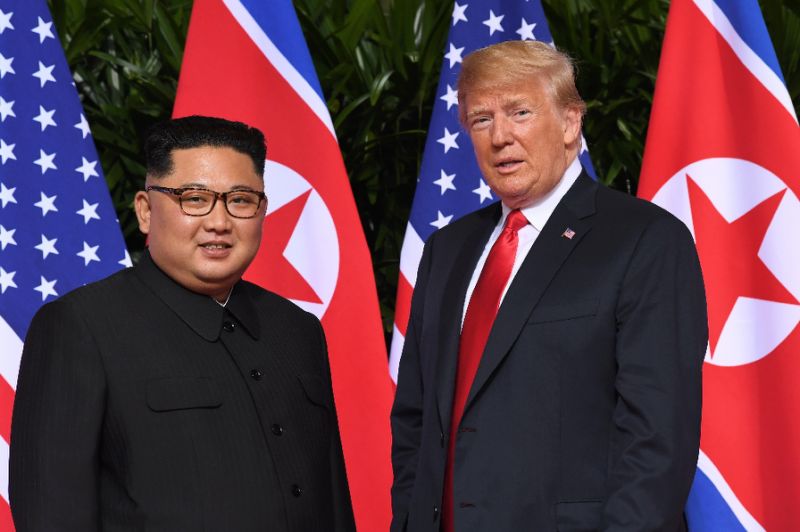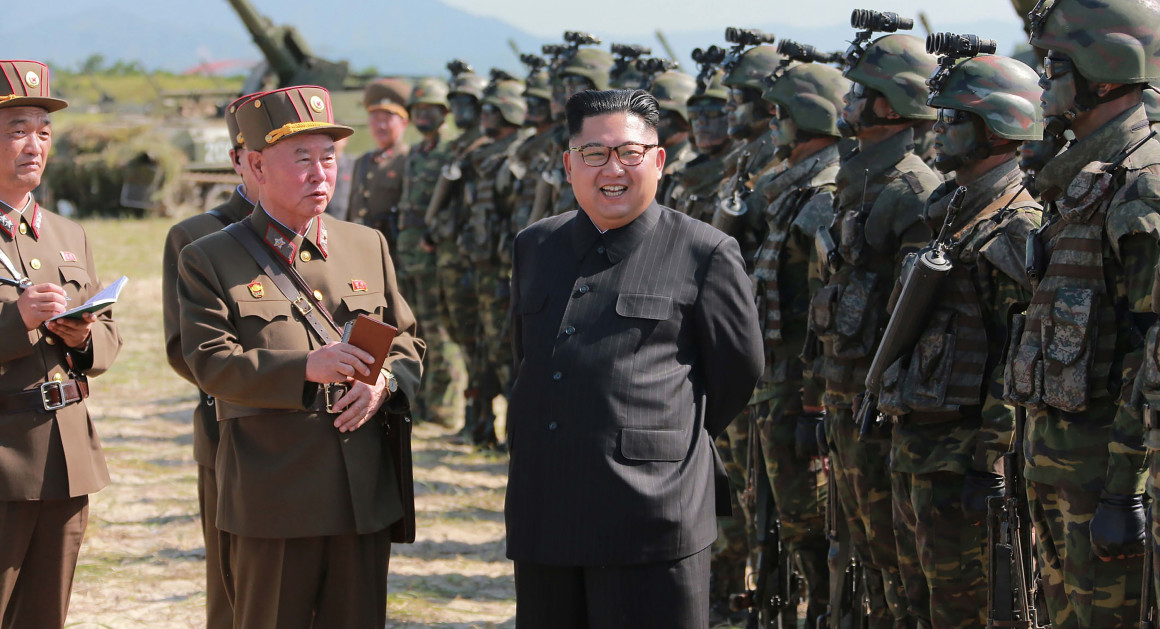On the surface, the rapport built between the U.S. and North Korea following the June summit in Singapore appears to be breaking down. In recent months, Kim Jong-Un‘s regime voiced its displeasure with the lack of change in economic sanctions, stating that “the improvement of relations and sanctions is incompatible.” This declaration was followed by North Korea’s cancellation of a high-level meeting between U.S. Secretary of State Mike Pompeo and his North Korean counterpart Kim Yong Chol in early November.
Most recently, U.S. analysts from the Center for Strategic and International Studies reported that satellite imagery suggests that the North has been storing short-range ballistic missiles at Sakkanmol, an undeclared operational missile base.
Perhaps the biggest threat from the most recent event in the Trump-Kim chapter of the relationship is the interpretation of the analysis by some mainstream U.S. media outlets. The New York Times’ headline declared that the discovery of operations at Sakkanmol “suggests a great deception” in light of the Singapore Declaration. President Donald J. Trump countered the Times’ claims, stating that “we fully know about the sites being discussed, nothing new.”
The story in the New York Times concerning North Korea developing missile bases is inaccurate. We fully know about the sites being discussed, nothing new – and nothing happening out of the normal. Just more Fake News. I will be the first to let you know if things go bad!
— Donald J. Trump (@realDonaldTrump) November 13, 2018
Is the discovery of operations at Sakkanmol a “great deception”? And why has North Korea been so reluctant to make verifiable steps to denuclearization?
Sakkanmol: ‘Great Deception’?
The short answer to the first question is no for several reasons. First, as Trump’s tweet indicates, the existence of the base has been known by the U.S. intelligence community for various years. In fact, it is only one of 13 such undeclared North Korean missile bases known by the intelligence community and North Korea analysts.
It is important to note that, unlike North Korea’s Yongbyon facility, the Sakkanmol base is primarily used to house short-range ballistic missiles and is thus a part of North Korea’s conventional weapons artillery, not its nuclear weapons program. While the base might be problematic in a conventional war involving South Korea due to its proximity to the demilitarized zone, it is not part of the denuclearization process that was the key focus of the Singapore summit.

Second, this discovery is not a “great deception” regarding the Singapore Declaration because the statement is ambiguous, especially concerning conventional weapons. The U.S. and North Korea agreed to cooperate on returning the remains of U.S. soldiers killed during the Korean War (a promise that North Korea has kept), build a strong bilateral relationship, create peace and stability on the Korean Peninsula, and, most importantly, work towards the denuclearization of the Korean Peninsula.
The discovery might have been damming for the future of the agreement if the base was a facility for nuclear weapons or nuclear development, but there is nothing in the agreement that explicitly mentions disarmament in general orshort-range ballistic missiles.
The D-Word
Why has North Korea been hesitant to proceed with denuclearization after its grand gesture of destroying its nuclear test site at Punggye-ri?
There are several reasons, including the international community’s demand for complete, verifiable, and irreversible dismantlement (CVID), the continuity of economic sanctions levied at the regime, and the uncertainty of future U.S. leadership.
North Korea has historically resisted the idea of CVID while the U.S. has insisted upon it. CVID essentially requires the inspection of former nuclear facilities by a third party to ensure that the nuclear program is shut down and cannot be restarted. However, it is unlikely that North Korea will ever agree to CVID or fully denuclearize. North Korean leadership has traditionally been guided by the principle of Juche, or self-reliance. Based on this ideology, the Kim regime has explicitly pursued nuclear weapons to ensure its survival; countries will avoid going to war with a country that has nuclear weapons out of fear for its use.

North Korea has repeatedly expressed its dissatisfaction with the continuity of economic sanctions against the country. Sanctions have been levied by the U.S., the U.N., and other members of the international community.
Currently, U.N. sanctions forbid member countries from exporting materials such as coal, iron, lead, and natural gas condensate to North Korea while limiting North Korean fuel imports such as crude oil and refined petroleum. The ban on coal is particularly harmful to the North Korean economy, as it is its chief export and one of its biggest sources of income.
Reciprocity Needed
However, since the Singapore summit, there has been no loosening of the sanctions on North Korea. Thus, the regime might demand some reciprocity for its destruction of the Punggye-ri site in the form of relaxed sanctions before it makes more steps toward denuclearization.
Finally, the North Korean government may be hesitant to rapidly go down the path of denuclearization knowing that, at best, Trump will be in office until 2024 and out at the earliest in 2020. Seen by some as a referendum on the Trump administration, the 2018 U.S. midterm elections resulted in the Democrats gaining a majority in the House of Representatives and the Republicans maintaining a majority in the Senate. Thus, the likelihood of Trump’s exit in 2020 appears greater than it did at the time of the Singapore summit.
There are no guarantees that Trump’s successors will honor any deal between Trump and Kim. In fact, a reflection of recent U.S. presidents’ North Korean policies validates North Korea’s fear. George W. Bush infamously included North Korea in the “Axis of Evil” while Barack Obama’s administration avoided negotiations and practiced “strategic patience,” hoping that sanctions would eventually induce the regime to denuclearize or collapse. The U.S. has witnessed 11 presidents in the time North Korea has gone through three leaders.
Denuclearization discussions and U.S.-North Korea rapport have not been derailed by the discovery at Sakkanmol, but if the U.S. wants to ensure that denuclearization is still on the negotiating table in the future it must seriously consider what it will give North Korea now in exchange for its previous moves.
Disclaimer: The views and opinions expressed here are those of the author and do not necessarily reflect the editorial position of The Globe Post.



















